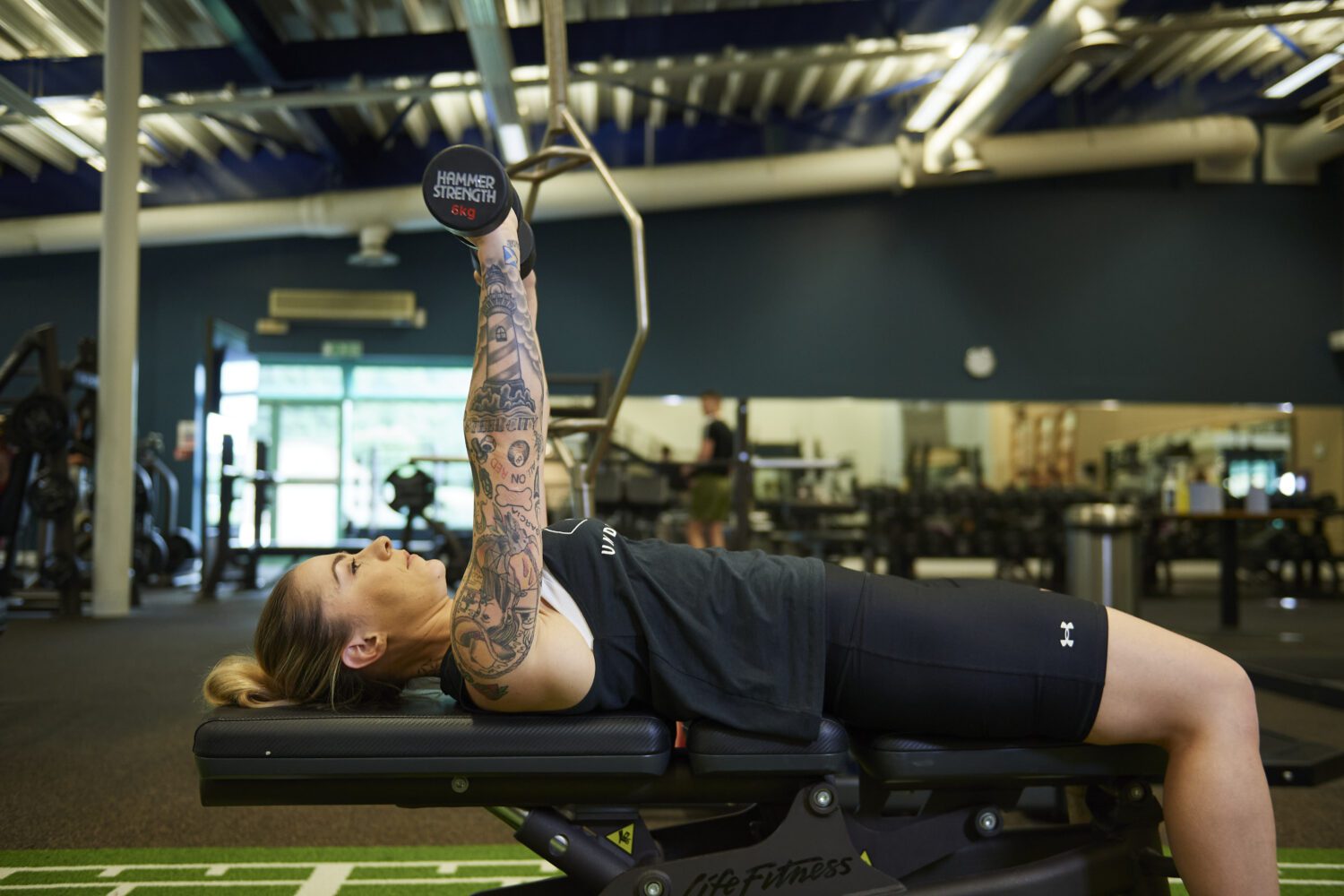

Thirty years ago, the majority of gyms were split into two groups: The cardio group and the free-weights group. There was not only a geographical split – with one side of the gym for cardio and the other for weights, but a gender split (for the most part). That’s not to say that no women lifted weights, but they were still rare.
Fast forward to today and many gyms have high numbers of both men and women who lift weights consistently, and the popularity of strength training has risen higher than ever before. Now we have Crossfit, and Olympic lifting classes, then there’s power-lifting, and Bodybuilding too. Even amateur sports clubs now pay close attention to Strength and Conditioning in an effort to improve results and to lower injury risk (both acute and chronic).
In this article we are going to look at several benefits of incorporating strength training into your own, and your clients’ routines. There are hundreds of benefits to strength training, so we will focus on the most important ones.
When we think of lifting weights, the first thing that most of us think about is improving muscle size or lowering body fat. Whilst this is true (and will be the focus of the rest of this article) it is also true that strength training can improve your quality of life. Studies have shown that lifting weights lowers blood pressure [1], improves cholesterol profile, and increases metabolism.
There is also evidence that strength training can reduce the risk of injury, help with arthritis and with low back pain [2]. It also increases bone density, which can help prevent fractures or osteoporosis. Strength training can also help with depression, making it excellent for both physical and mental health.

This might seem like a bit of an inconsequential benefit, but improving sleep quality has many carry-overs. It can reduce cortisol, increase testosterone and growth hormone production, improve athletic performance, and also improve muscle protein synthesis (helping with recovery after a workout). Having a good night’s sleep can also improve your diet, as a bad night’s sleep can increase ghrelin levels and lead to overeating.
Most people exercise because they want to lose weight, but this is a bit of a simplistic term. If you asked 90% of people whether they wanted to lose muscle mass they would say that they didn’t. What they actually want to do is improve their body composition. Lose fat, gain muscle. Luckily strength training is incredibly effective at doing this.
A 2010 study by Kwon et al showed that strength training led to reduced body fat, and increased muscle strength in Type II Diabetic women [3]. While cardio is effective for burning fat through calorie expenditure, nothing is better when it comes to increasing muscle size and strength than strength training.

As we mentioned earlier, strength training has been shown to increase strength, lower injury risk, increase bone density, and improve sleep quality. Is it at all surprising then that strength training can improve your performance in the sport of your choice?
In 2000 a study by Kraemer et al found that strength training could improve performance in female tennis players. It leads to increased serve velocity, due to increased power in the upper and lower body [4]. But really this is just one example of hundreds of studies where strength training has been effective at improving performance.
Strength training will improve coordination, increase strength, speed, and power. It is perfect as a tool for improving athleticism and giving you an edge over the competition.
For a very long time, a lot of people tried to convince the world that lifting weights was bad for your posture, and in some ways they were right. If you trained chest 6 days a week for an hour each day you would probably not end up with terrific posture. But following a well-planned strength training program can lead to great postural improvements.
Exercises such as the deadlift can help you to strengthen the muscles in your upper back, whilst also teaching you how to lift with perfect posture. Rowing movements can also help strengthen your upper back, whilst Romanian deadlifts, and Good Mornings can strengthen your lower back. There are exercises that can help improve your hip mobility which can help with running posture.
In short, strength training can make a big difference to how you sit, walk, lift, and run in everyday life. Combine this with all the other benefits we’ve looked at (and the hundreds more that we didn’t have time for) and you’ll see why it’s definitely worth 3 hours of your week.
Our Advanced Resistance Training course offers an in-depth understanding of advanced resistance training including techniques and programs designed to increase muscle strength, power, endurance and hypertrophy (size) and power endurance.
References
[1] Moraes, M., Bacurau, R., Simoes, H., Campbell, C., Pudo, M., Wasinski, F., Pesquero, J., Wurtele, M., Araujo, R. 2012. Effect of 12 weeks of resistance exercise on post-exercise hypotension in stage 1 hypertensive individuals. Journal of Human Hypertension26(9): 533-9
[2] Westcott, W. 2012. Resistance training is medicine: Effects of strength training on health. Current Sports Medicine Reports11(4): 209-16
[3] Kwon, HR., Han, KA., Ku, YH., Ahn, HJ., Koo, BK., Kim, HC., Min, KW. 2010. The effects of resistance training on muscle and body fat mass and muscle strength in Type 2 Diabetic women. Korean Diabetes Journal34(2): 101-110
[4] Kraemer, W., Ratamess, N., Fry, A., Triplett-McBride, T., Koziris, P., Bauer, J., Lynch, J., Fleck, S. 2000. Influence of resistance training volume and periodization on physiological performance adaptations in collegiate women tennis players. The American Journal of Sports Medicine28(5): 626-633